Samsung Galaxy S24: Everything you need to know
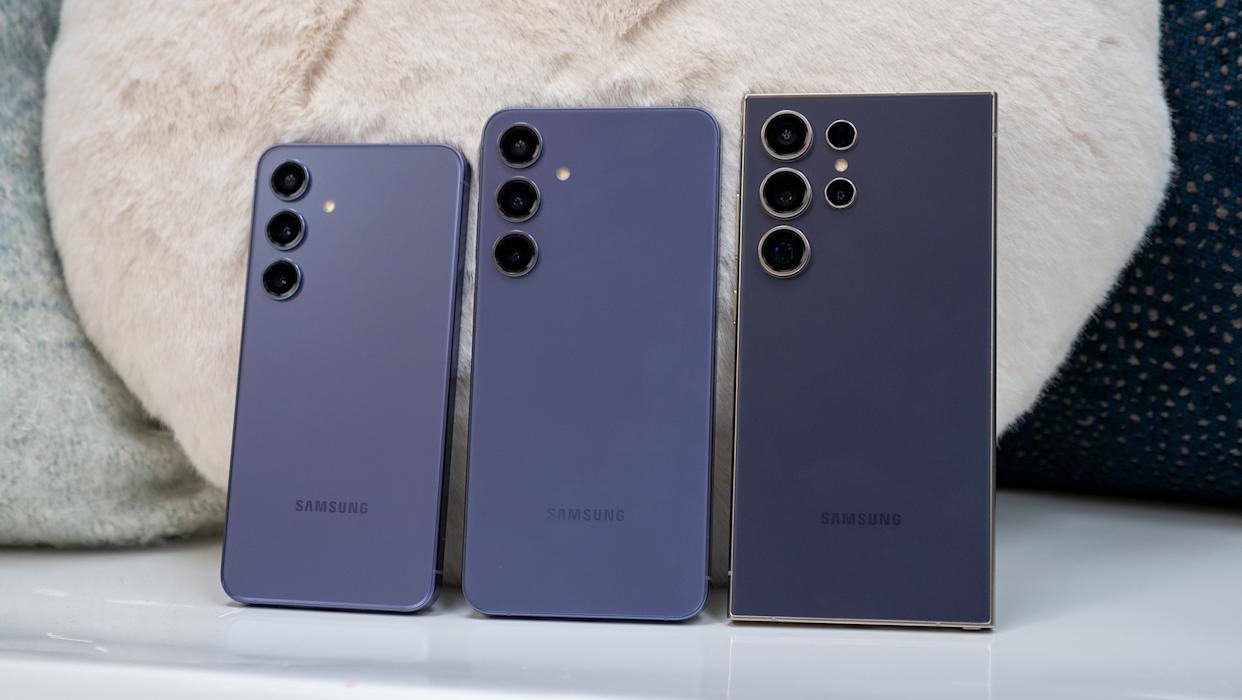
Samsung's Galaxy S23 series was a success any way you measure it. From the improved sales numbers to the improved experience over the S22, Samsung knocked it out of the park in 2023.
The Samsung Galaxy S24, Galaxy S24 Plus, and Galaxy S24 Ultra are great entries into the fabled Galaxy S series, offering faster processors, better battery life, brighter displays, and a ton of fantastic new AI features.
If you want to read more about the wider Galaxy S24 lineup, my Samsung Galaxy S24 hands-on covers all the bases for what you can expect from all three devices. For a more in-depth look at these phones, we've got a Samsung Galaxy S24 Plus review and a Samsung Galaxy S24 Ultra review that can help you decide if these devices are worth buying.
Samsung Galaxy S24: Price and availability
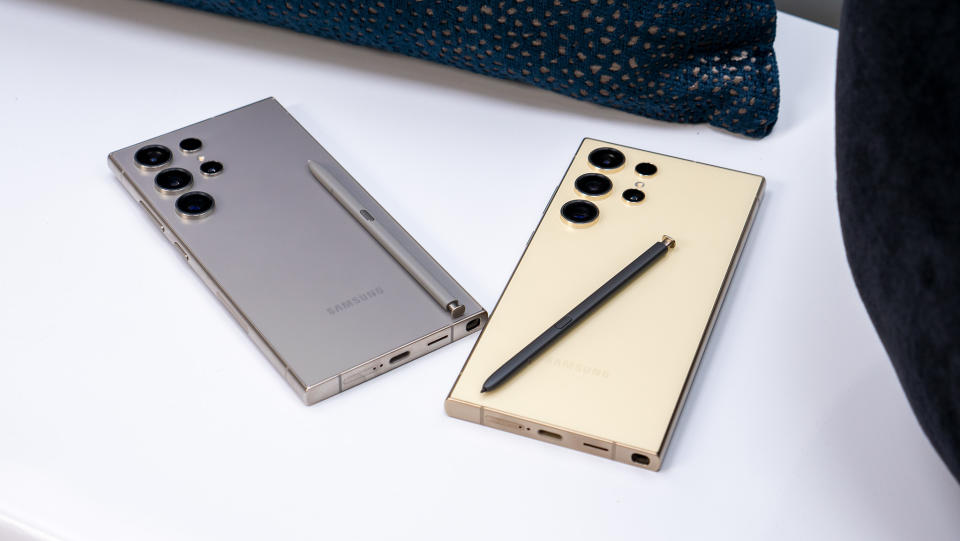
Samsung announced the Galaxy S24 family at Samsung Unpacked on January 17, 2024, and the product officially launched on January 31, 2024. As expected, Samsung announced three models: a smaller Galaxy S24, a larger Galaxy S24 Plus, and an ultra-premium Galaxy S24 Ultra. As always, the best Galaxy S24 deals can get you any of these phones for a lot less than the retail price.
The smallest of the bunch, the Galaxy S24, starts at $799 with 128GB of storage and 8GB RAM. You can upgrade to 256GB of storage for an additional cost.
The Galaxy S24 Plus starts at $999 with 256GB of storage and 12GB of RAM with the option to upgrade to 512GB of storage.
The Galaxy S24 Ultra is seeing a $100 price increase this year, starting at $1,299 with 256GB of storage and 12GB of RAM. Additional storage options include 512GB and 1TB. Samsung isn't selling a model with reduced RAM or storage this year as it has in the past.
Samsung is promising seven years of operating system and security updates on all Galaxy S24 models, a first for the company. That's the same promised schedule Google impressed with when it announced the Pixel 8 series in Fall 2023.
Samsung Galaxy S24: Design and displays
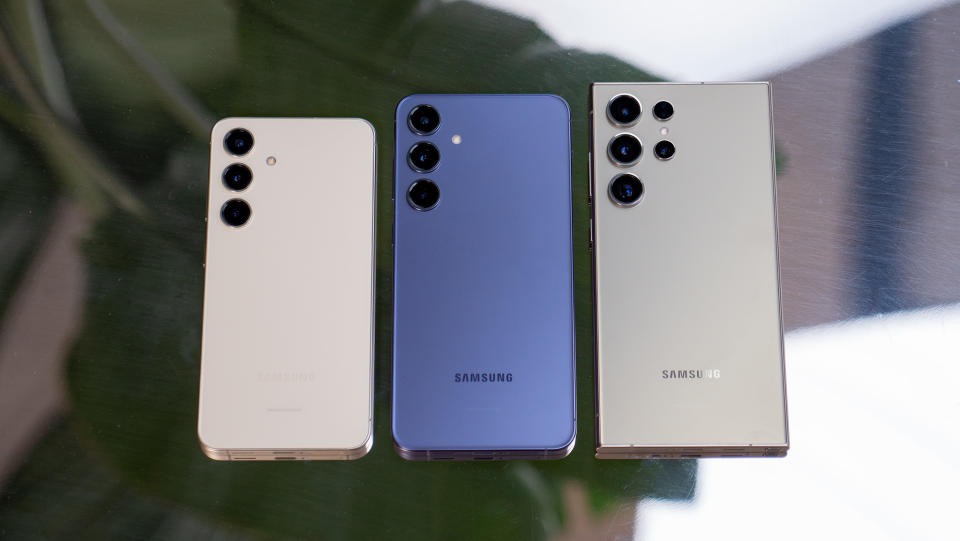
All three Galaxy S24 models share a similar design language to their predecessors with fairly minor tweaks here and there. The Galaxy S24 and Galaxy S24 Plus look identical apart from their size, while the Galaxy S24 Ultra continues to evolve the Galaxy Note-style design introduced with the Galaxy Note 10.
The Galaxy S24 got a small size bump from the Galaxy S23 and is now 0.01 inches wider and 0.03 inches taller. It received a small 0.01-inch screen size increase but didn't gain any weight despite sporting a 100mAh larger battery than the previous year's model.
Galaxy S24 Plus is smaller than the Galaxy S23 Plus despite gaining a 0.01-inch-larger screen. More specifically, the body now measures 0.19 inches shorter, 0.07 inches narrower, and 0.05 inches thinner than the Galaxy S23 Plus. The S24 Plus received a 200mAh larger battery than the S23 Plus and weighs 0.04 ounces more because of it.
The camera bumps on these two models are less pronounced this year, and Samsung curved the edges of the frames to make them blend in better with the flat front and back. The result is a design that looks and feels more like a unibody chassis than ever before.
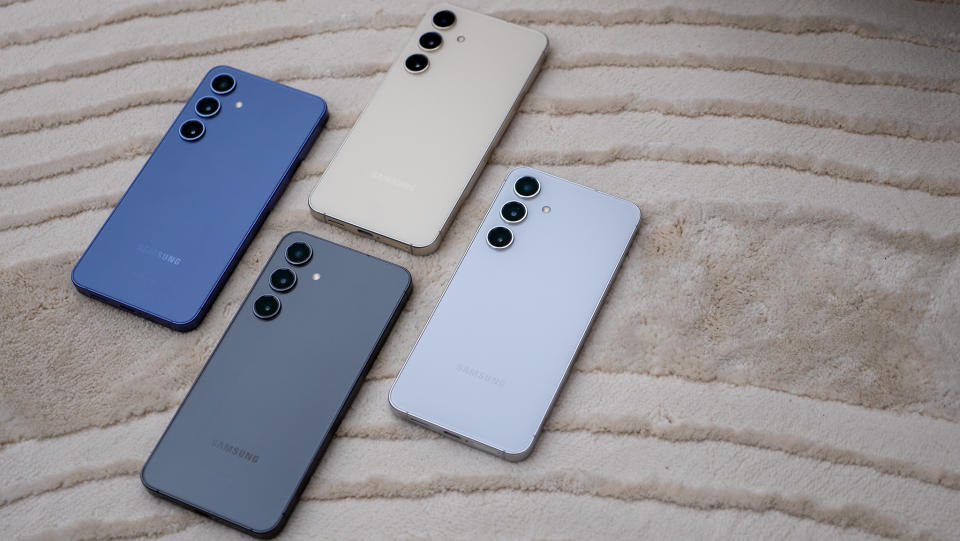
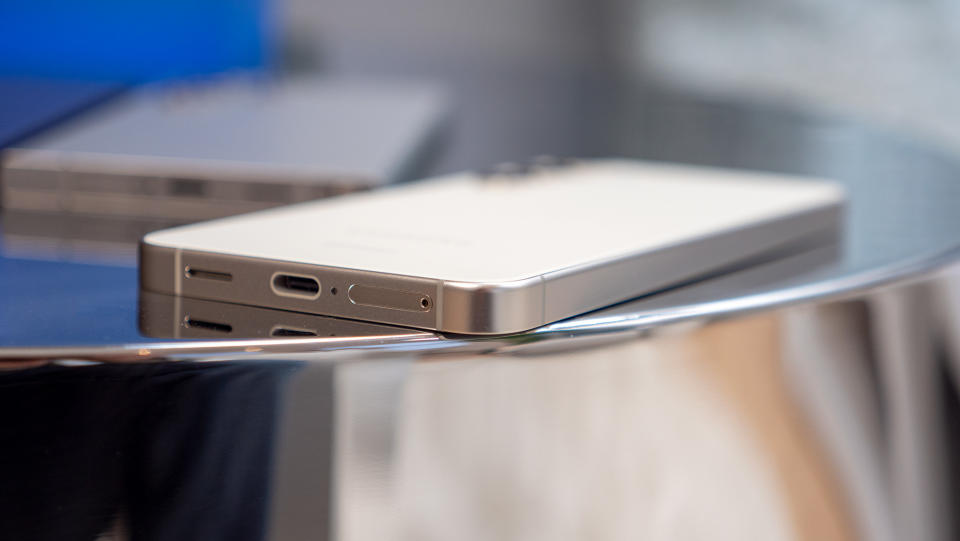
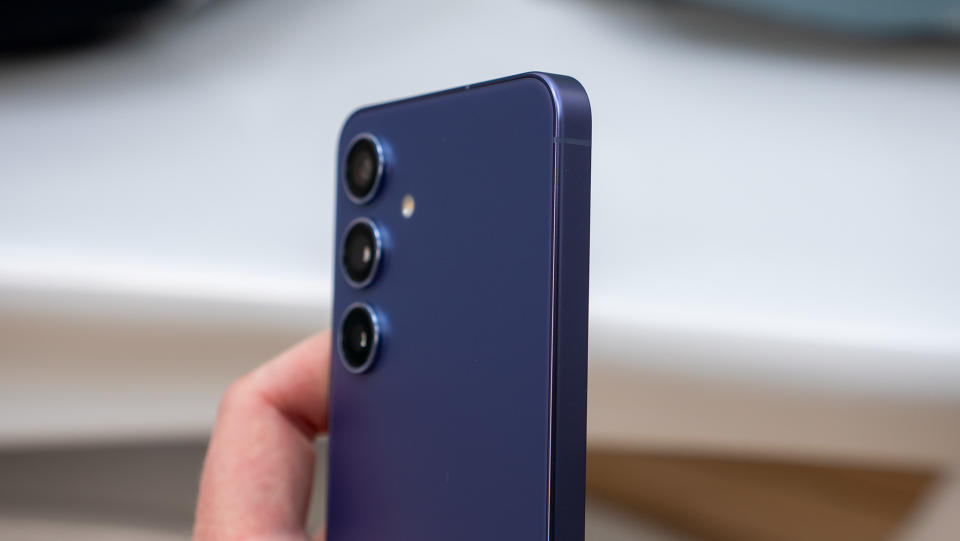
The real big changes came in the S24 Ultra, but you probably wouldn't know it from the numbers. It's now 0.04 inches wider, 0.03 inches taller, 0.01 inches thicker, and 0.03 ounces heavier than the Galaxy S24 Ultra and features a completely flat display alongside a titanium frame.
That titanium frame is said to be much stronger than the Armor Aluminum frame on the S24 and S24 Plus, and the flat screen should make taking notes on the edge of the display far easier. Plus, it means there won't be an awkward gap between the edge of a screen protector and the best Galaxy S24 Ultra cases.
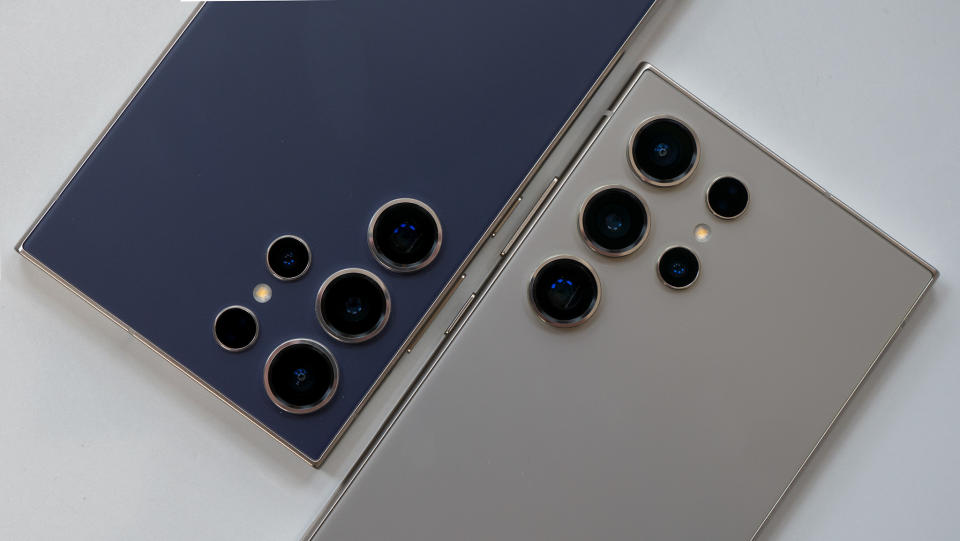
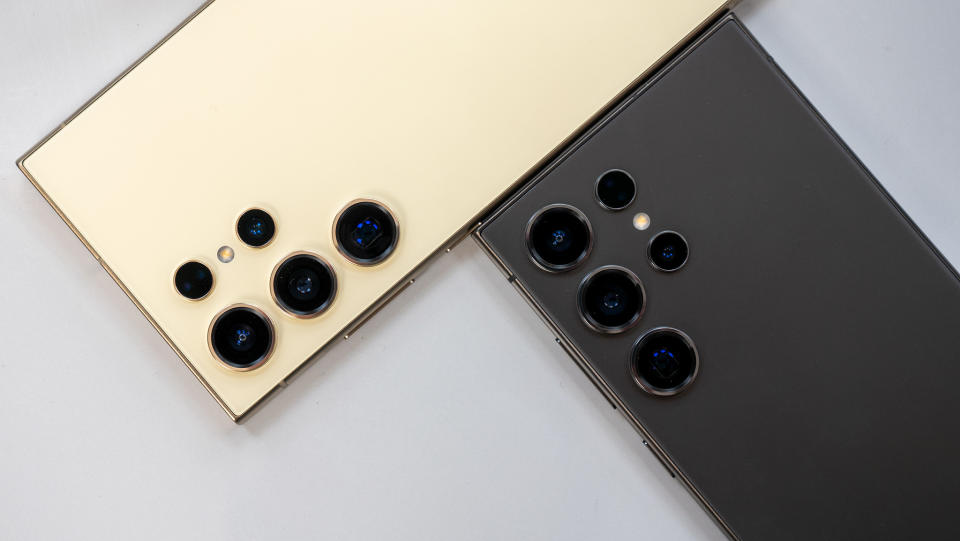
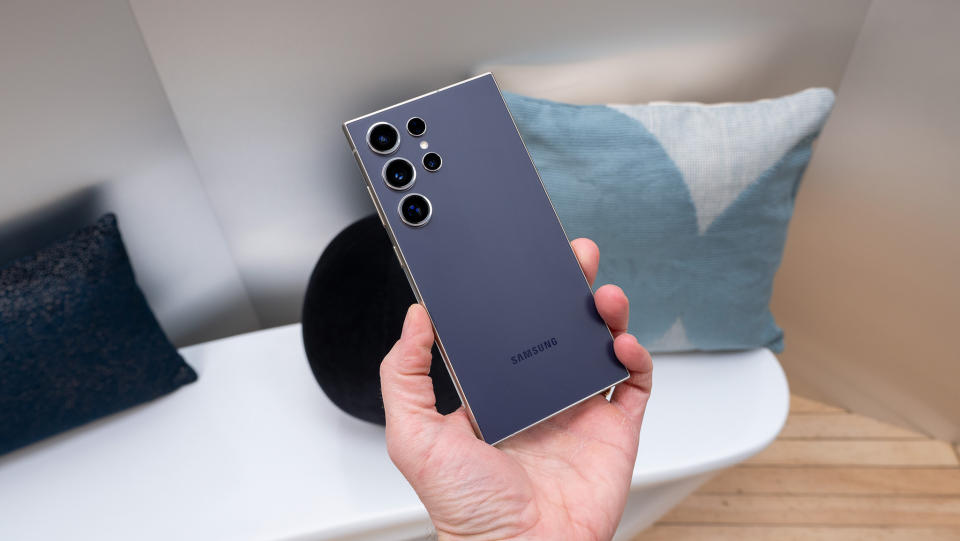
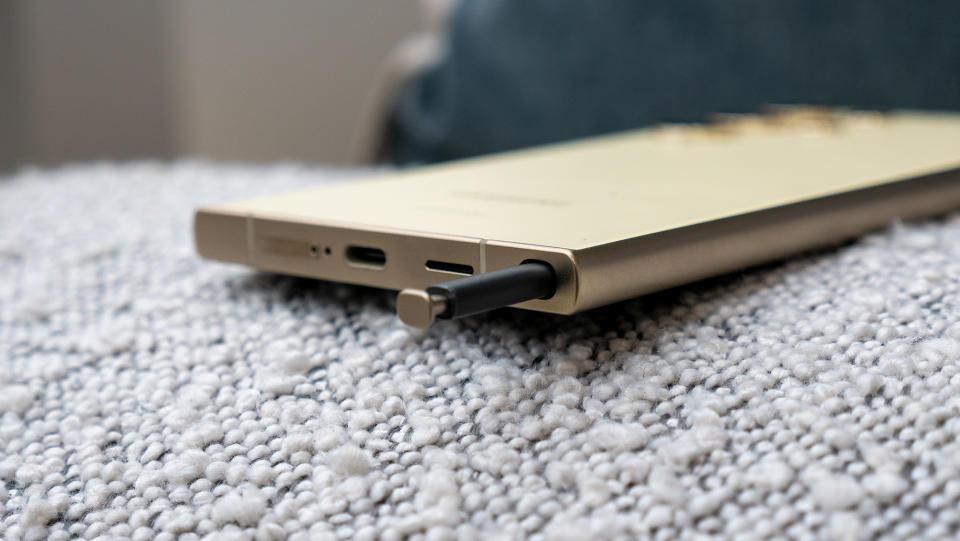
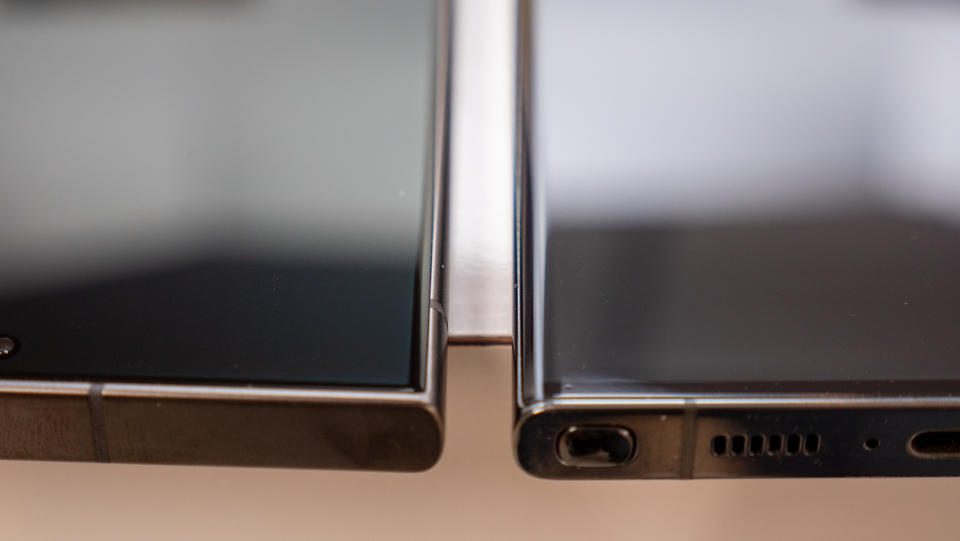
Samsung upgraded the displays of all three models, giving each of them a peak brightness of 2,600 nits as well as LTPO technology capable of scaling from 1Hz to 120Hz dynamically.
The Galaxy S24 Plus also got a resolution bump to QHD+, up from FHD+ on the Galaxy S23 Plus.
All displays use Vision Booster to artificially increase brightness outdoors by flickering the display on and off. Thankfully, Samsung doubled the PWM rate on these phones to 480Hz, making it possible for some PWM-sensitive individuals to use them.
Samsung Galaxy S24: Cameras
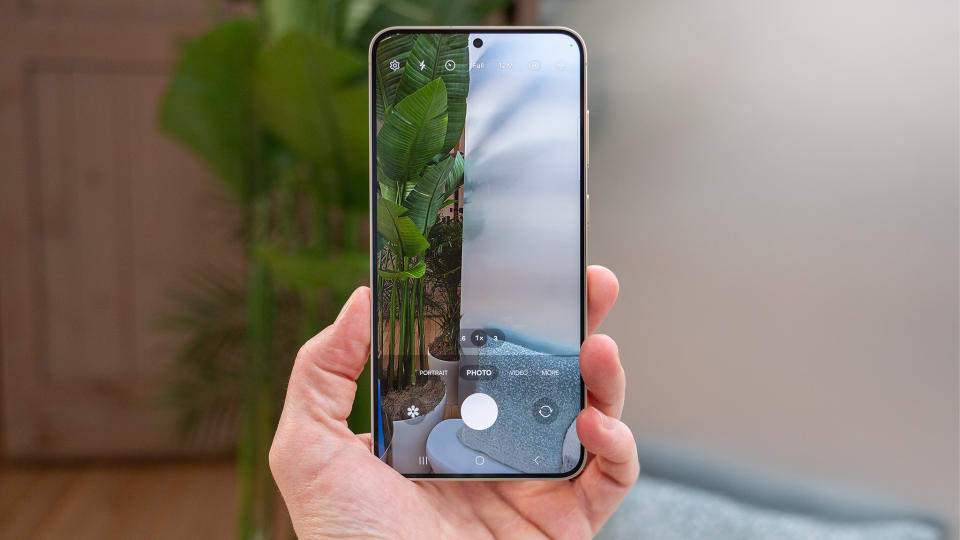
The Galaxy S24 and Galaxy S24 Plus are, once again, not seeing any camera hardware changes this year but are getting some important software updates. The hardware includes the same triple rear camera array introduced with the Galaxy S22 series: a main 50MP camera, a 12MP ultrawide camera, and a 10MP telephoto camera behind a 3x optical zoom lens.
The Galaxy S24 Ultra retains the same 10mp 3x telephoto and 12mp ultrawide camera as those models but now uses an updated 200MP sensor compared to the 200MP sensor in the S23 Ultra. The Ultra also has a brand new 50MP camera with a 5x optical zoom lens.
This 5x lens replaces the 10x lens found in previous Galaxy S Ultra models, signaling a change in strategy from Samsung. The company now claims that the Galaxy S24 Ultra can capture "optical-quality photos" from 1x to 10x. That's a big upgrade from prior years, as the quality between 5x-9x was quite a bit worse than at other zoom levels.
Our Galaxy S24 Ultra camera review proves that Samsung was right and the S24 Ultra delivers the best zoom detail of any phone available in the U.S. right now.
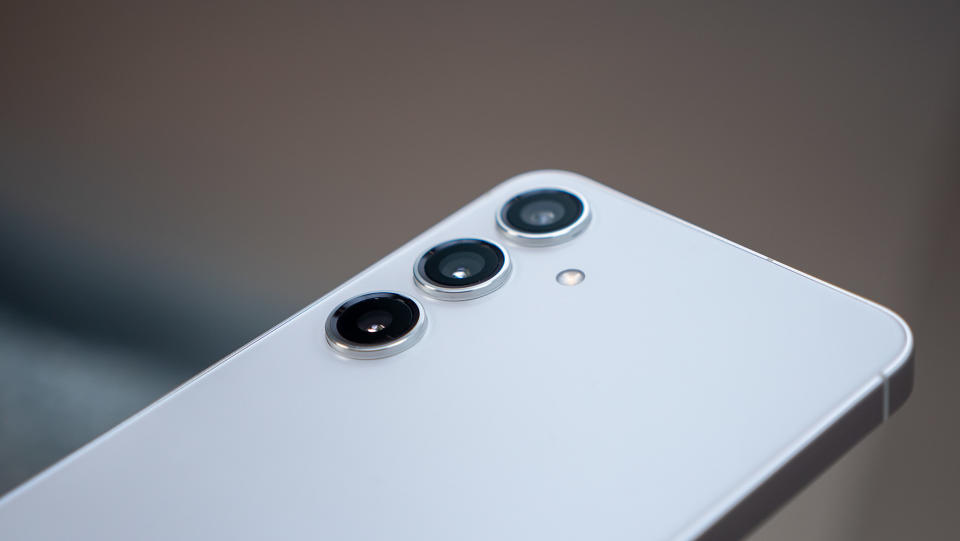
Samsung is launching what it calls the ProVisual Engine, an AI-powered set of automated tools that is designed to capture better photos across the entire Galaxy S24 line. Samsung's Galaxy AI runs on the phone's powerful processor and is designed to help users capture better photos and videos with suggested compositions and more intelligent processing.
Samsung swapped out the 10x lens with a 5x lens on the Galaxy S24 Ultra, claiming now that the phone achieves "optical-quality photos" between 1-10x.
Samsung is also debuting Super HDR which shows a more correct preview image in the viewfinder. That includes real-time processing of brightness adjustments, colors, and contrast without having to take the picture and wait for it to be processed.
Samsung has also worked with popular social media apps like Instagram and Snapchat to ensure camera quality in those apps is identical to what comes from the main camera app on the phone.
Samsung Galaxy S24: Specs and performance
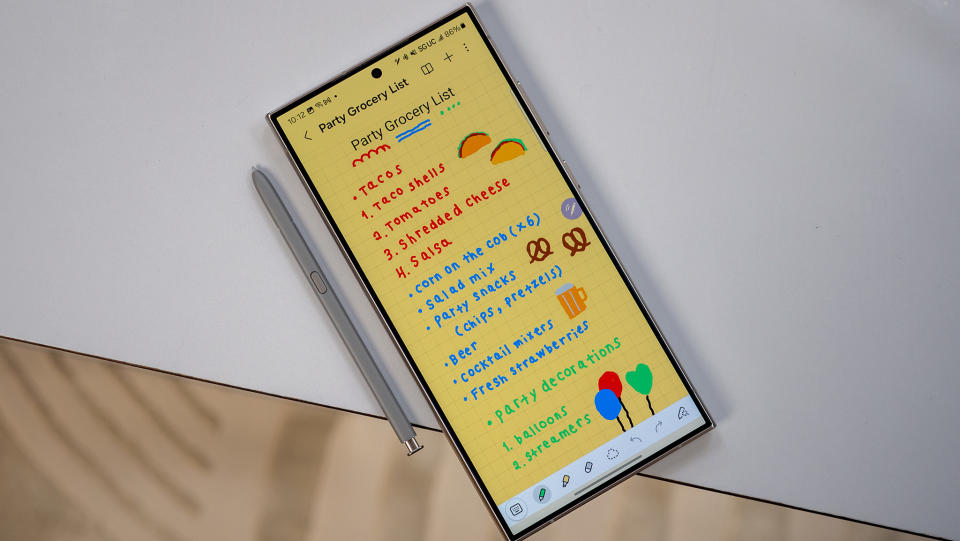
While the Galaxy S23 series launched with Qualcomm Snapdragon chipsets worldwide, Samsung is returning to the split Snapdragon/Exynos strategy with the Galaxy S24 series.
All models of Galaxy S24 Ultra worldwide are powered by the Qualcomm Snapdragon 8 Gen 3 for Galaxy. That's a special version of Qualcomm's latest processor that features improved clock speeds.
The smaller Galaxy S24 and Galaxy S24 Plus are also powered by the Snapdragon 8 Gen 3 in these countries according to Android Authority:
U.S.
Canada
China
Hong Kong
Taiwan
Elsewhere in the world, the Galaxy S24 and Galaxy S24 Plus will be powered by the Samsung Exynos 2400 processor.
While previous generations of Exynos processors left a lot to be desired, the Exynos 2400 looks like a substantially better processor in every regard. Benchmarks show that it holds its own against the Snapdragon 8 Gen 3, but we'll have to see if Samsung's new enhanced cooling vapor chambers are able to keep both processors cool during heavy use.
Samsung is splitting between Exynos and Snapdragon again, but all models are capable of running ray-traced games.
The Exynos 2400 features AMD's RDNA 3 architecture which is capable of running games with ray tracing support. Even the Snapdragon 8 Gen 3 for Galaxy features ray tracing support. At launch, War Thunder Mobile and Arena Breakout both support ray tracing and Samsung says more ray-traced games are coming soon.
Samsung is working on several new AI tools to increase productivity and ease of use for its users. The company is also bringing these new AI features to its 2023 flagships, so you won't have to upgrade this year to get the new hotness if you just upgraded last year.
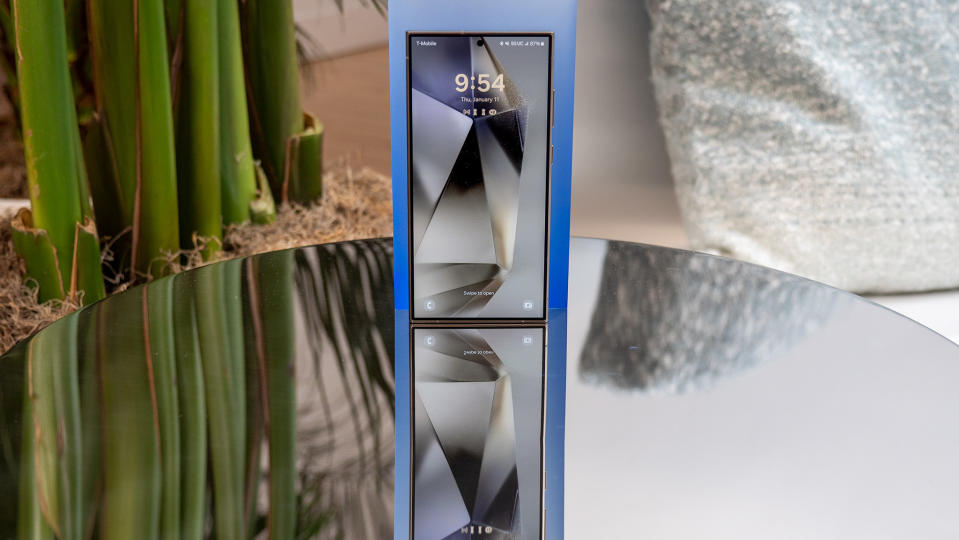
Samsung upgraded two key specs of the S24 Plus this year, ramping it up to 12GB of RAM and increasing the display resolution to QHD+. That's up from 8GB of RAM and an FHD+ resolution on the Galaxy S23 Plus.
All three models now support LTPO display technology, meaning these displays can scale from 1-120Hz dynamically as needed. Plus, they all ramp up to 2,600 nits of peak brightness.
The S24 and S24 Plus also have larger batteries this time around, with a 4,000mAh battery inside the smaller S24 and a 4,900mAh battery in the S24 Plus. The S24 Plus also supports up to 45W wired charging while the S24 still only supports a maximum of 25W wired charging.
Samsung Galaxy S24: AI all the things
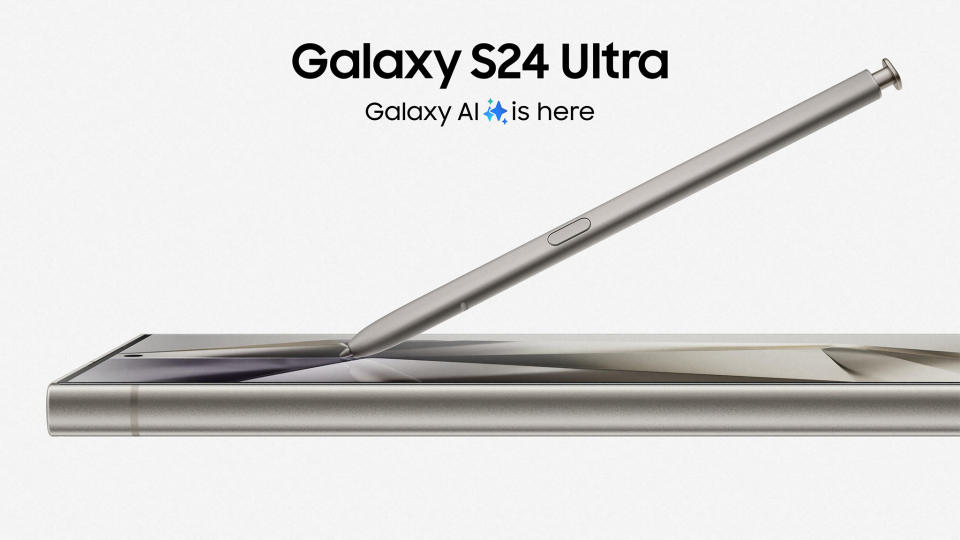
Samsung is going all-in on AI this year, supercharging everything from on-device translation to photo editing, image capture, note-taking, and even phone calls with AI power. Samsung calls its new suite of AI tools Galaxy AI, and it includes eleven total features available on all three new Galaxy S24 models.
Many features are quite similar to ones that debuted on Google Pixel series phones over the past few years, and many even require a Google account or an internet connection to function.
Only three of the eleven new AI functions run on-device without requiring an internet connection:
Edit suggestions
Photo Ambient Wallpaper
Translation features (Calls, Interpreter, Messages)
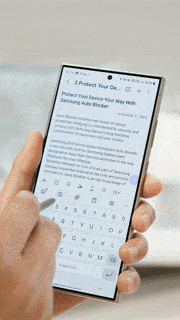
The remainder of the Galaxy AI functions require an internet connection in order to work. They are:
Auto Format
Circle to Search
Generate Cover
Generative Edit
Generative Wallpaper
Magic Compose Texting
Summary (Samsung Internet, Samsung Notes, Voice Recorder)
Writing Assist
Many of these features are extremely useful when needed, including real-time phone call and message translation, assistance with composing messages in texts and emails, document and web page summaries, and even writing assistance in the form of a spell checker, grammar checker, and more.
Additionally, Samsung is using Android 14's generative AI wallpaper, a Magic Editor-like enhancement for Samsung Gallery, the new Google Circle to Search function, and even more.
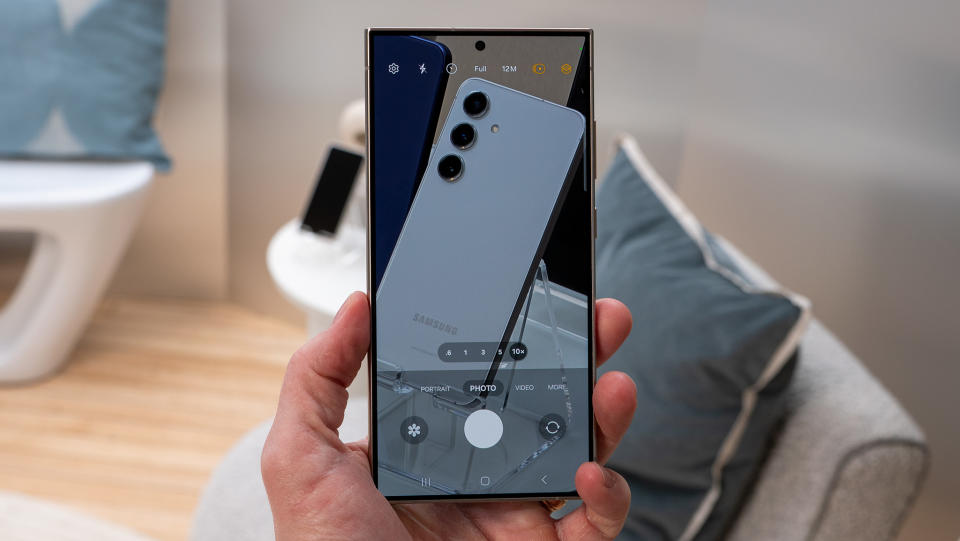
On the camera side of things, Samsung's Galaxy AI is being used in the backend to not only suggest image composition changes to take better pictures but also to more intelligently process photos and videos.
Samsung is also introducing a new Instant Slow-Mo feature that uses generative AI to slow videos down to 1/2 or 1/4 speed by pressing and holding on them in the Samsung Gallery app. Videos taken at 120FPS will look better slowed down as it won't need to generate new frames, but this new feature can help add some interesting drama and detail to all videos.
